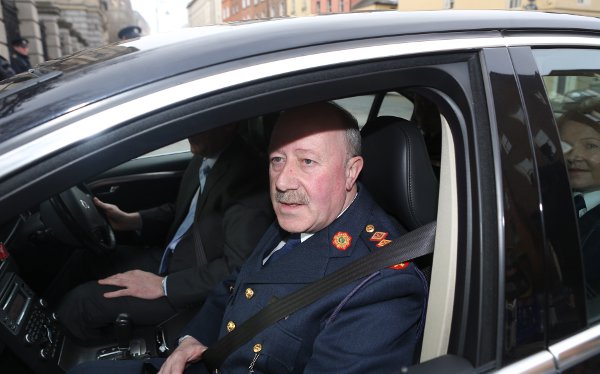THE story of the Gardai and recent scandals which have attached to the force was not big news in 2013 but it is the big story of 2014.
For this newspaper, the story started when the two Garda whistleblowers presented their concerns about weaknesses in the system of processing penalty notices for road traffic offences to a group of Independent TDs.
Some of what they had in their possession sounded potentially explosive so The Irish Post started asking a few questions.
Already this newspaper was covering the forced redundancy of journalist Gemma O’Doherty from Independent News and Media (INM), weeks after she approached the Garda Commissioner Martin Callinan to ask he was the beneficiary of a penalty points quashing.
This was a story that required no digging, her departure was reported by Roy Greenslade in the Guardian, but nowhere else of note it seemed.
Weeks later we were told that a car registered to the address of the chief executive of INM Stephen Rae had points quashed.
If we could stand this up, then we expected the story to quickly widen into a matter of public interest in Ireland. The kind of levels we are witnessing now: front page, top of news, a story on everyone lips.
We did. Only, we couldn’t understand why there was no pick-up at home?
 Gemma O'Doherty was forced to leave the Irish Independent
Gemma O'Doherty was forced to leave the Irish IndependentThe information being leaked by the whistleblowers demanded that relationships between the Government, the guards and certain elements in the media, required the strongest application of journalistic rigour. Why wasn’t it being done?
Weeks passed and nothing happened, on the record at least. Off the record chatting to friends at home and members of the force, I was told that no one in Ireland was interested in the whole story around penalty points. It was a “non-story,” which was why the mainstream were not covering it, they suggested. I felt exasperated.
From the outside at least it appeared as though the Irish media were far too cosy with people in power and journalistically, the decision not to hold them to account was concerning. So what changed since then?
Well, crucially the whistleblowers refused to be silenced and the persistence of Sergeant Maurice McCabe led to a loss of revenue investigation by the Dail Public Accounts Committee. During that process the Commissioner described the actions of the whistleblowers as “disgusting” and all of a sudden the public and the media became interested.
Then followed allegations by Garda Ombudsman Simon O’Brien that it appeared his offices had been bugged, the government reaction to the security sweep he had commissioned and later, McCabe’s handing of a file to Michael Martin.
The Fianna Fail leader said this file contains documents which pointed to a failure to properly investigate serious cases and ultimately, murder.
The media reaction to this and the report published by the Garda Inspectorate has been encouraging but blundering by the Government made the story impossible to ignore and it should be recorded that the facts were always there. Not buried. Not hidden. Just ignored.
 Garda Commissioner Martin Callinan has called the whistleblowers "disgusting"
Garda Commissioner Martin Callinan has called the whistleblowers "disgusting"
The difference now is that six months ago it was easy to do this however it is heartening and healthy for society that this has changed.
Now, the Minister for Justice Alan Shatter is under pressure, the Garda Commissioner Martin Callinan is under pressure and both are receiving the kind of media scrutiny their positions and actions deserve – they are public servants, they are there to serve the public but by referring to the Gardai as his force, the Commissioner doesn’t give the impression that he is acting in the public interest, more someone who dispenses law and order as he sees fit.
This cannot become a hot issue if only for a couple of weeks when we’ll roll onto the next scandal. In other countries heads would roll. Once the full facts are known we can judge whether people should go, what’s more important than finding a scapegoat is that proper change is initiated and that any changes inspire public confidence.
In respect of the relationship between the politicians and the Guards – there needs to be separation. In respect of the future there needs to be more of what we have witnessed in the last few weeks.
Now it looks like we are moving towards a society where there is more transparency and accountability. That kind of society is long overdue.
For a long time I thought these were things that determined the focus of our profession, but then along came a big story that had be dragged kicking and screaming into the public interest.

